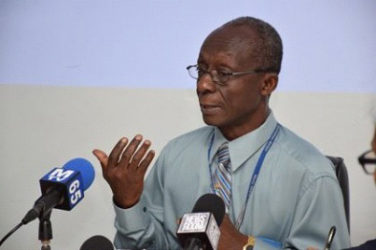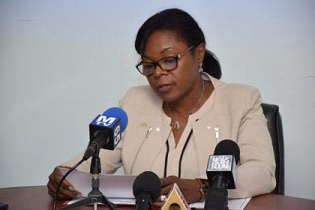As the country has none, PAHO/WHO has committed to training two haematologists in an effort to promote early screening and diagnosis of sickle cell and thalassaemia blood disorders, GINA said.
A stakeholders’ meeting and workshop was held on Wednesday, hosted by PAHO/WHO, in collaboration with the Ministry of Public Health. The aim of this exercise was to develop a plan towards ensuring that Guyana’s health system ably accommodates care, treatment and support for persons living with the blood disorders, GINA said PAHO/WHO Country Representative to Guyana, Dr. William Adu-Krow said it is important that human capacity is built in the form of


Continuing Medical Education. “Within the whole country, we do not have any haematologists and therefore there is a need to have haematologists trained. We hope to train at least two haematologists.”
It has been recognised that for some time, GINA said, there has been an upsurge in the number of late diagnoses due to the fact that test samples are often sent overseas to determine results. Thus far, 976 test samples were sent out for screening of which only a small number of results were received.
This has drawn the attention of senior health officials as a public health issue. Guyana has no trained personnel to operate the equipment to carry out the testing; hence it has to send samples for testing abroad.
Coordinator of the Chronic Diseases unit, Ministry of Public Health, Dr. Kavita Singh said, according to GINA that an analyser used for screening newborn babies for sickle cell had been procured through a public-private partnership and now sits at the National Public Health Reference Laboratory in Georgetown, since no person is qualified to use it.
“Our other issue has, and it’s a very big one, as it relates to not having trained personnel, … I would say at the level of my unit, we do not have a trained person who is very much versed in addressing sickle cell and its complication so there is a need to build capacity,” Dr. Singh pointed out.
Deputy Chief Medical Officer, Dr. Karen Boyle said that partnerships between the ministry and other stakeholder agencies has seen robust action being taken towards ensuring that persons can access early screening for sickle cell and thalassaemia.









